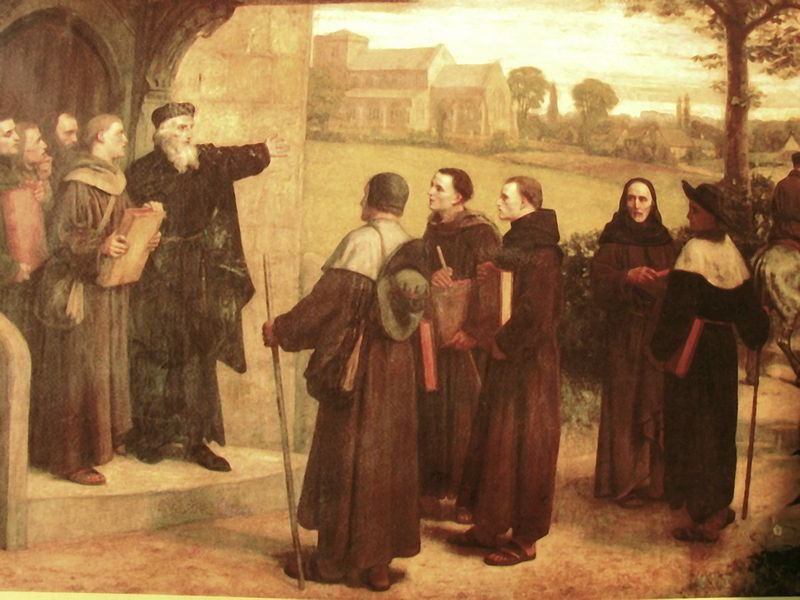417. To Kill a King: The Scottish Reformation
John Knox polemicizes against idolaters and female rulers, while the humanist George Buchanan argues more calmly for equally radical political conclusions.
Themes:
• M.A. Breslow (ed.), The Political Writings of John Knox (Washington: 1985).
• R.A. Mason (trans.), John Knox: On Rebellion (Cambridge: 1994).
• R.A. Mason and M.S. Smith (ed. and trans.), George Buchanan: A Dialogue on the Law of Kingship among the Scots (Burlington VT: 2004).
---
• A. Broadie, A History of Scottish Philosophy (Edinburgh: 2008).
• C. Erskine, R.A. Mason, George Buchanan: Political Thought in Early Modern Britain and Europe (Farnham: 2012).
• W.I.P. Hazlett (ed.), A Companion to the Reformation in Scotland, ca. 1525-1638: Frameworks of Change and Development (Leiden: 2022).
• R.A. Mason (ed.), John Knox and the British Reformations (Aldershot: 1998).
• R.G. Kyle, God’s Watchman: John Knox’s Faith and Vocation (Eugene: 2014).
• R.G. Kyle, John Knox: an Introduction to His Life and Works (Eugene: 2009).
• M. Todd, The Culture of Protestantism in Early Modern Scotland (New Haven: 2002).







Comments
The Knoxian phrase "from a…
The Knoxian phrase "from a corrupt and venomed fountain can spring no wholesome water" reminds me a lot of the American legal principle of the "fruit of the poisonous tree" that excludes illegally obtained evidence.
It is probably a stretch since the legal doctrine only came in the 20th century: but perhaps this was in the mind of the lawyers and the framers of the the US constitution.
What also struck me was the appeal to extreme individualism of Knox and Buchanan - and its reflexion in the US constitution. I think one could argue that Knox did have a significant influence on the framers of the constitution: particularly with the idea of individual judgement and action.
Add new comment